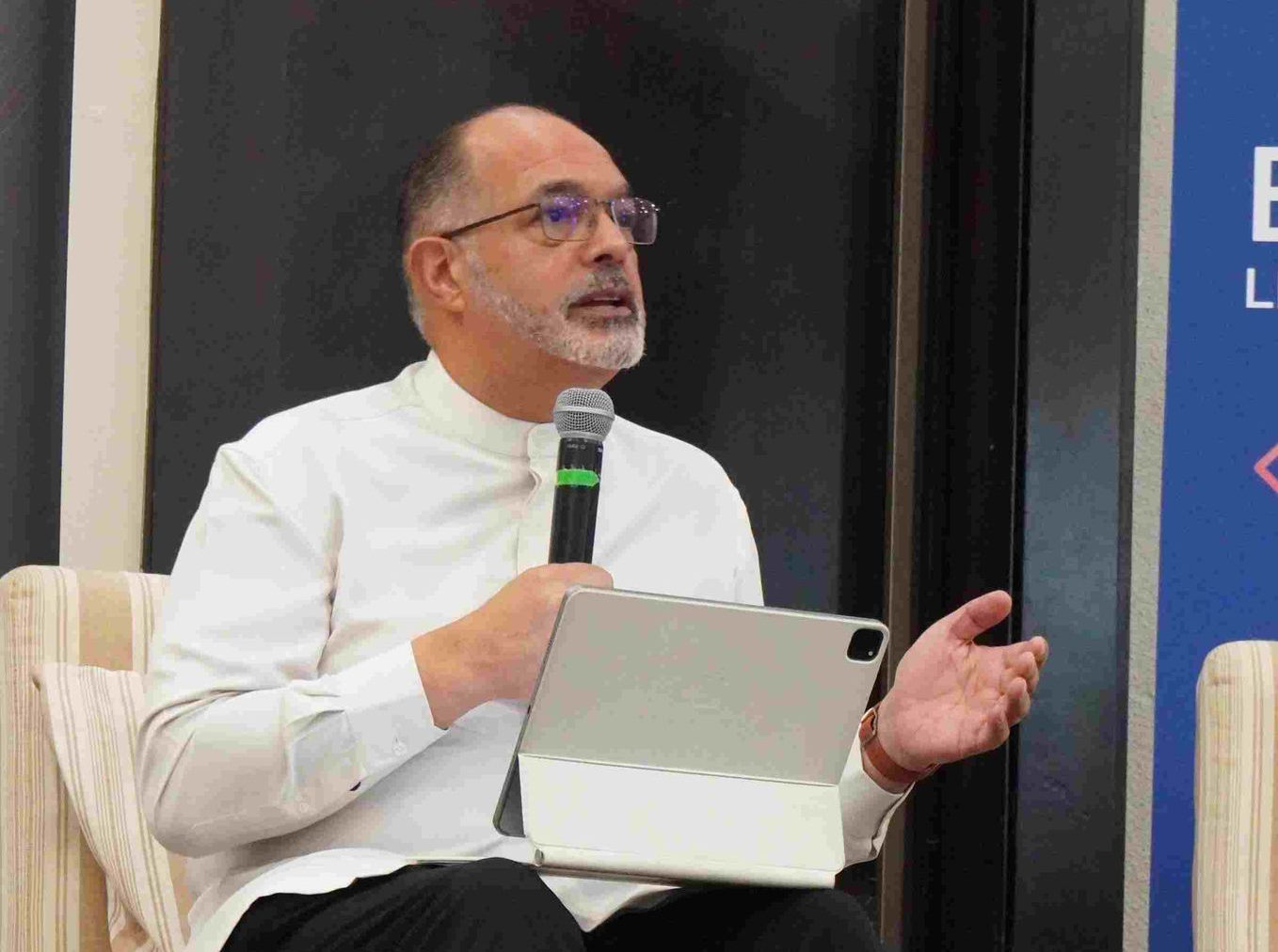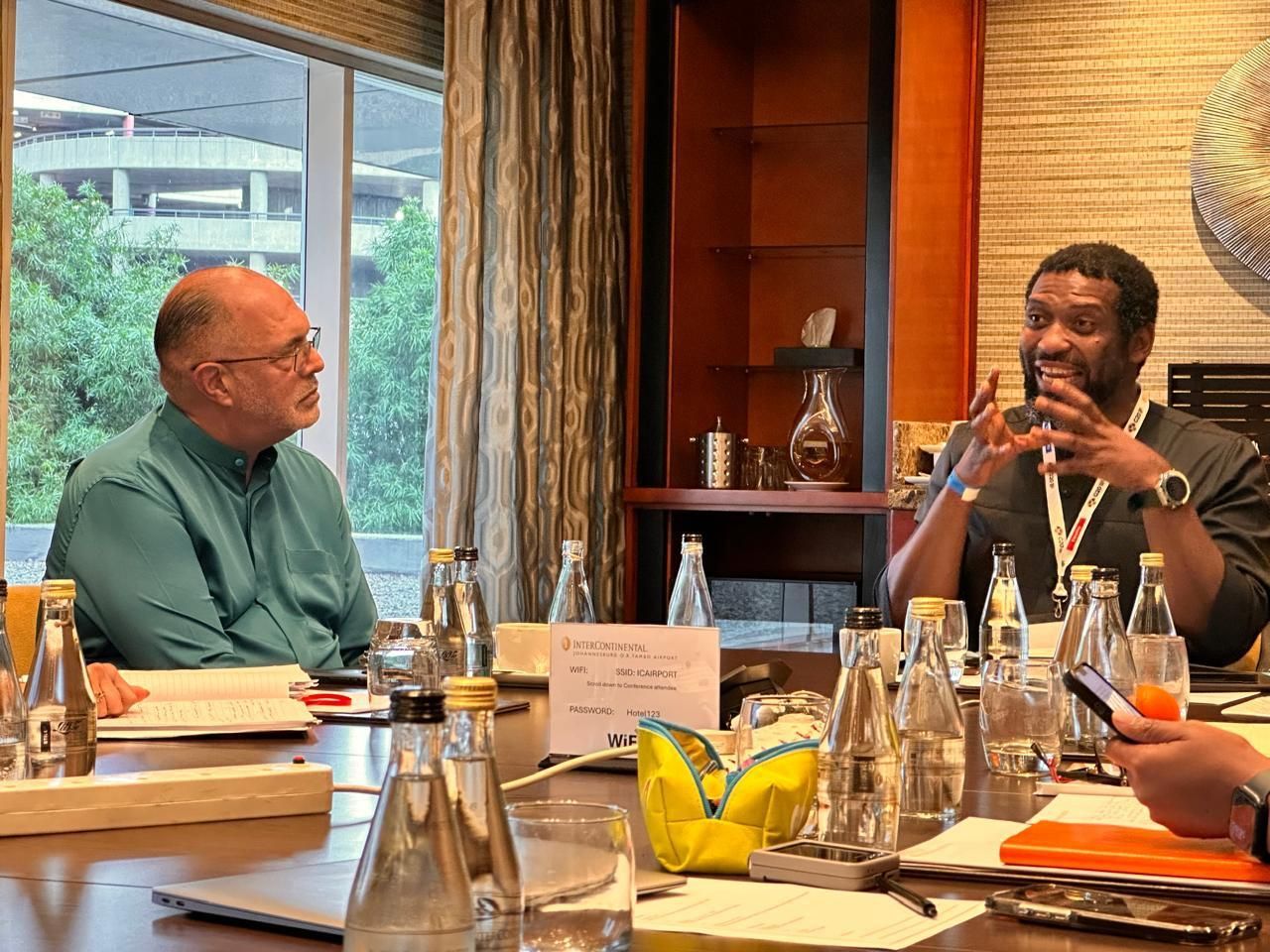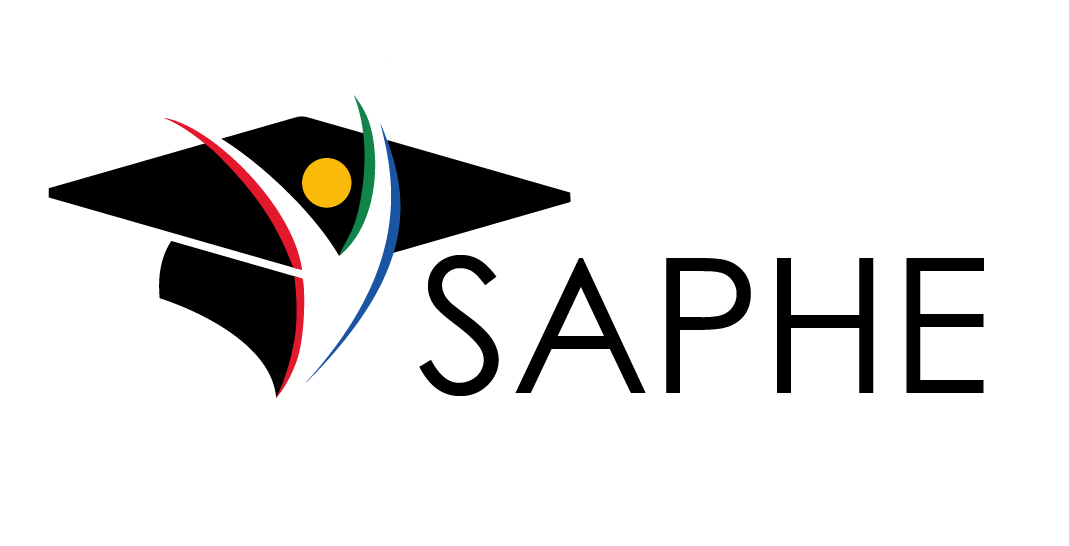Celebrating Excellence: SAPHE Awards 2024
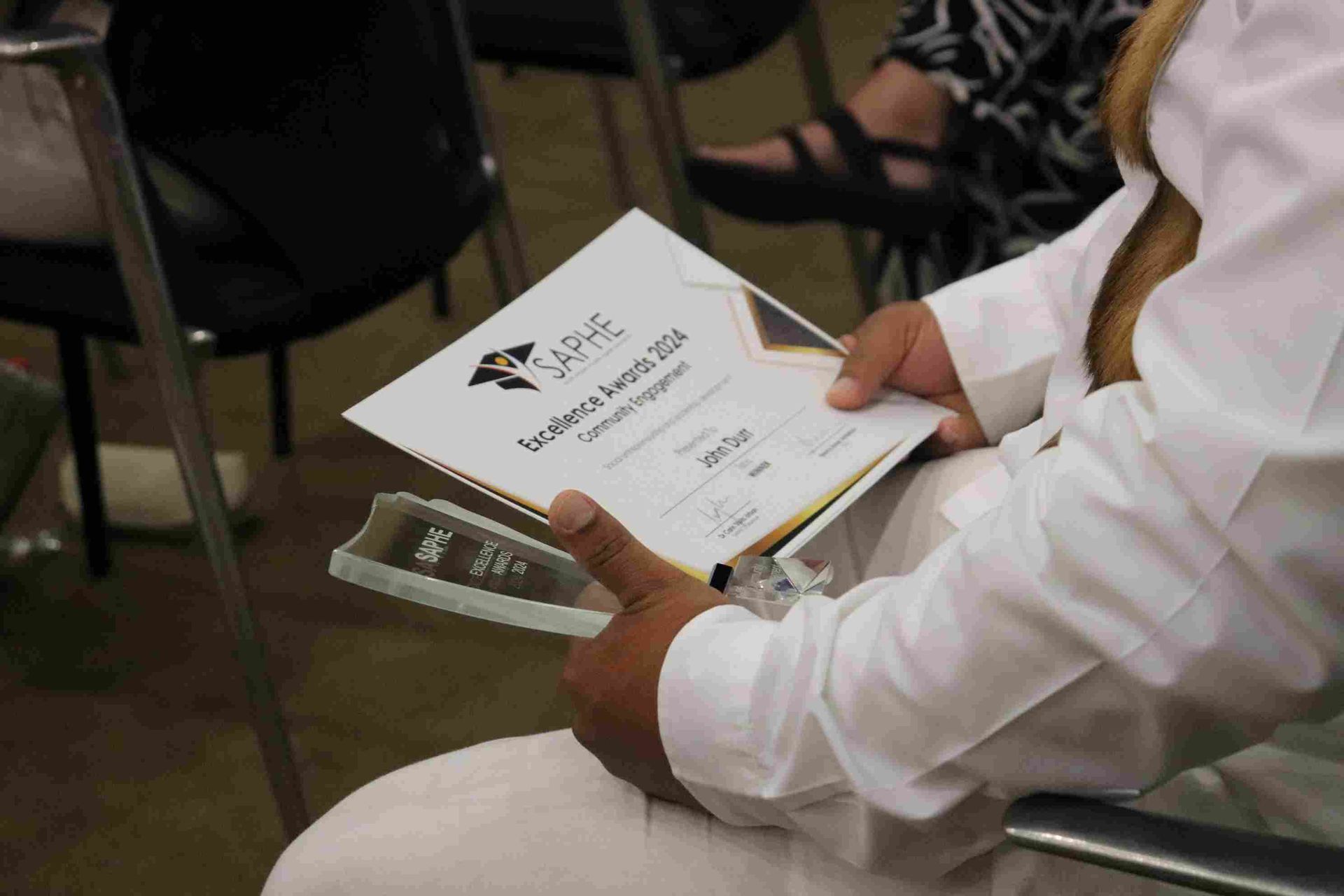
The inaugural SAPHE Excellence Awards 2024 celebrated a significant milestone in recognising academic excellence within the private higher education sector. As an exciting new initiative by SAPHE, these awards recognise excellence across the three core business areas: Teaching and Learning, Research and Innovation, and Community Engagement. Each category honours impactful contributions that advance education, foster collaboration, and benefit society.
Dr Celia Booyse, one of the judges, noted that a rigorous evaluation process was followed. The panel developed criteria as bases for the deliberations on each submission, the reasoning for evaluation and as qualitative and quantitative evidence.
Key questions guiding the evaluation included assessing whether contributions represented new developments, their relevance to education and/or society at large, the level of collaboration and cooperation involved, and the rigour of research practices.
The criteria helped assess whether a contribution was outstanding, remarkable, or average. An outstanding contribution was characterised as significant, noteworthy, and impactful within its domain, representing an excellent achievement for the broader educational sector. A remarkable contribution was recognised for its originality and innovative practices that exceeded conventional norms, standing out as well above average and surpassing minimum standards
Entries from Boston City Campus, The Da Vinci Institute and Tsiba secured the winning trophies in the categories of Teaching and Learning, Research and Innovation, and Community Engagement respectively.
The SAPHE Excellence Awards 2024 underscored the invaluable contributions of private higher education institutions in advancing innovation, education, and societal impact. These remarkable achievements provide inspiration and a benchmark for future endeavours.
SAPHE Award winners:
- Teaching and Learning: Boston City Campus, with academics Dr Rob Stegmann, Ms Colette Heunes, Prof. Cobus Oosthuizen, and Dr Janet Viljoen taking the trophy for their multi-faceted entry.
- Research: Dr Tadi Rampai (Posthumous) from The Da Vinci Institute.
- Community Engagement: Mr John Durr and Mr Earl-Djehuti Erasmus from Tsiba.
Runners-up:
- Teaching and Learning: 1st runner-up, Ms Annetjie Pretorius (The Independent Institute of Education); 2nd runner-up, Ms Riana Prins and Dr Cecelia Rosa (IMM Graduate School).
- Research: 1st runner-up, Ms Jaclyn van Rensburg (Red & Yellow Creative School of Business); 2nd runner-up, Dr Rob Stegmann (Boston City Campus).
- Community Engagement: 1st Runner-Up, Ms. Sarina Till (The Independent Institute of Education); 2nd runner-up, Dr Daud Taranikhe (The Da Vinci Institute).
Trophy winners in the respective categories:
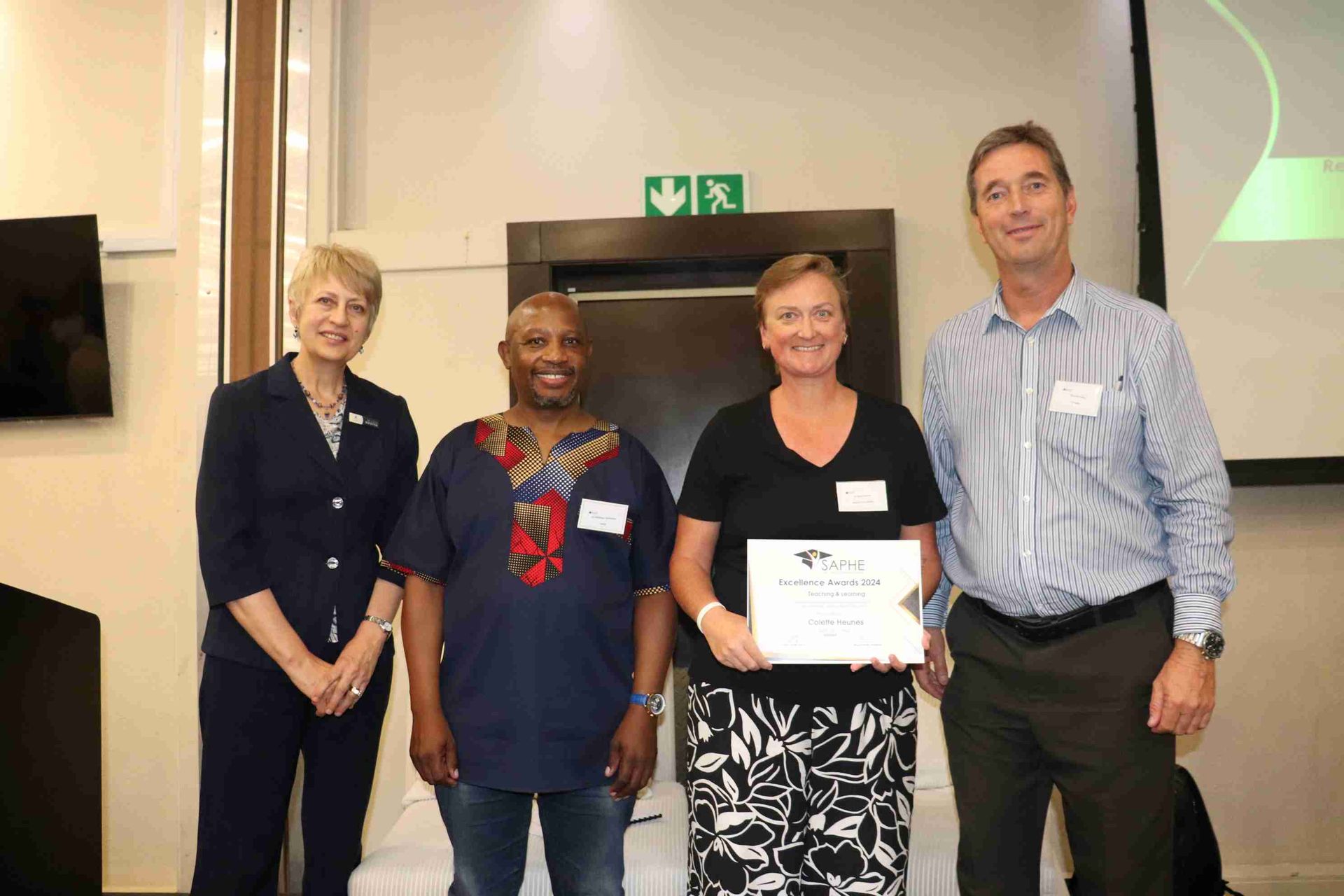
Teaching and Learning – Boston City Campus:
From left: Dr Celia Booyse (judge), Dr Makhapa Makhafola (SAQA COO, keynote speaker), Dr Janet Viljoen (Boston City Campus), and Mr Rinus de Jager (Cengage, gold sponsor)
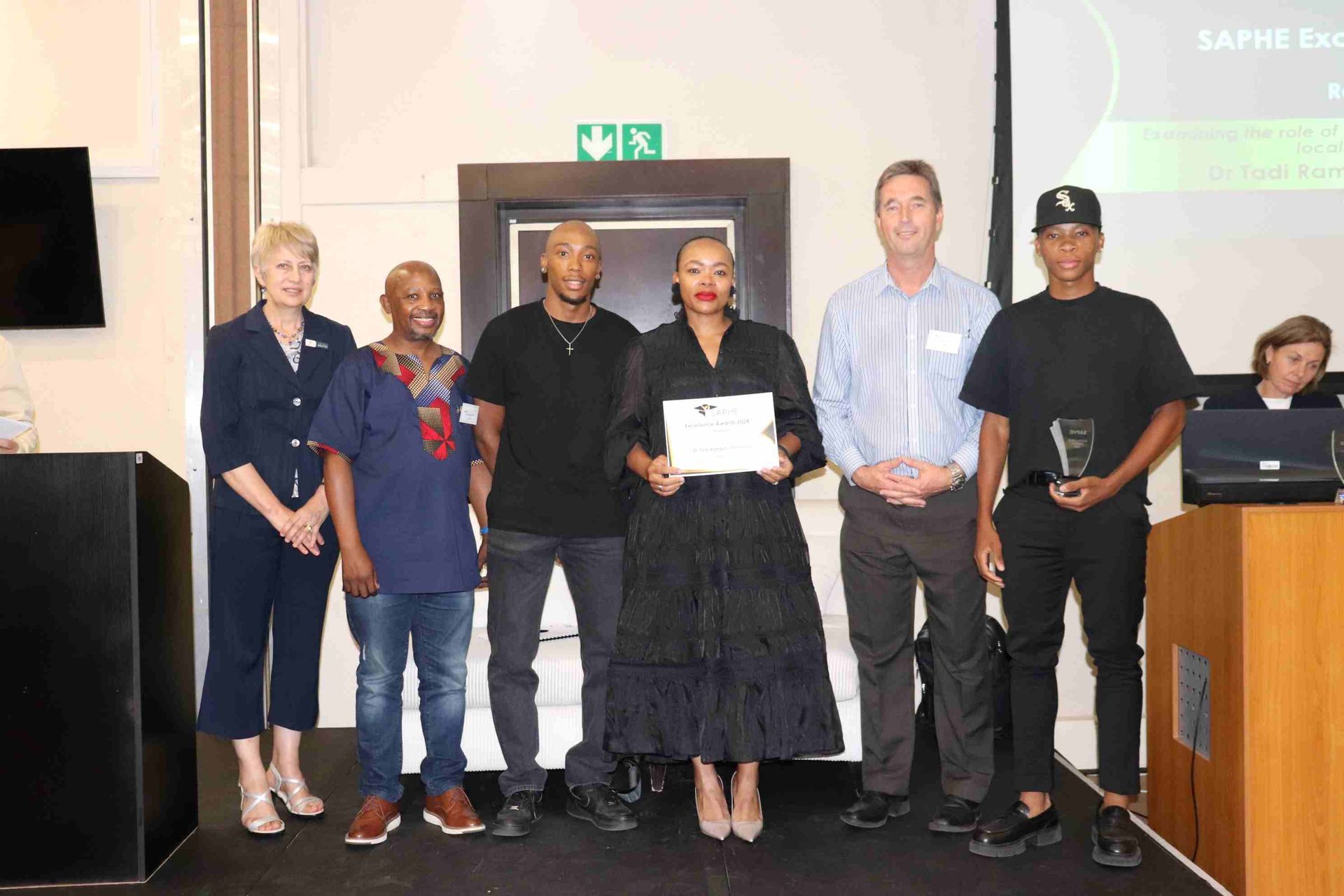
Research – The Da Vinci Institute (Posthumous Award to Dr Tadi Rampai):
Posthumous Award to Dr Tadi Rampai. From left: Dr Celia Booyse, Dr Makhapa Makhafola, Mr Mapula Rampai, Mrs Keamogetane Rampai, Mr Rinus de Jager, and Mr Tumelo Rampai. The award was received by Dr Rampai’s family.
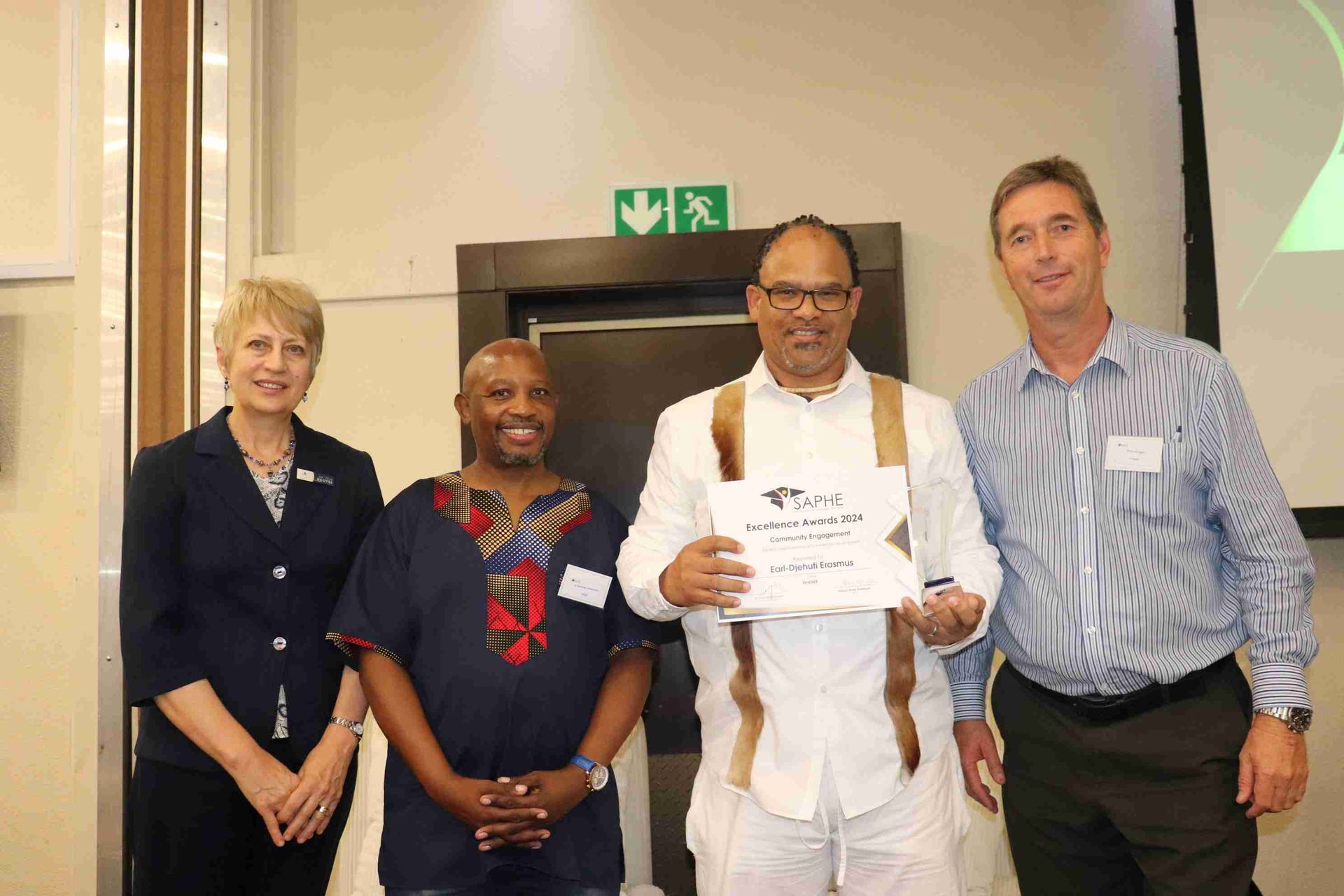
Community Engagement – Tsiba:
From left: Dr Celia Booyse, Dr Makhapa Makhafola, and Mr Earl-Djehuti Erasmus.

